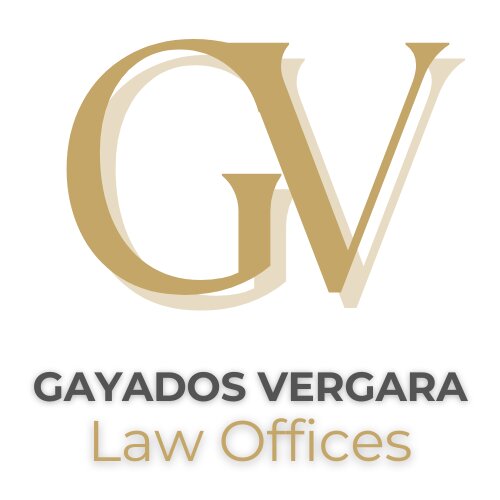Best Climate Change Law Lawyers in Philippines
Share your needs with us, get contacted by law firms.
Free. Takes 2 min.
Or refine your search by selecting a city:
List of the best lawyers in Philippines
About Climate Change Law in Philippines
Climate Change Law in the Philippines aims to address the challenges posed by rising global temperatures, extreme weather events, and the environmental effects of greenhouse gas emissions. The Philippines, as a country highly vulnerable to climate change, has enacted laws and policies to promote mitigation, adaptation, and resilience. These legal frameworks cover several areas, including the reduction of carbon emissions, promotion of renewable energy, management of natural resources, and instituting climate-resilient infrastructure. The legal landscape also emphasizes the need for disaster risk reduction, sustainable development, and the protection of communities most at risk from climate impacts.
Why You May Need a Lawyer
Situations involving Climate Change Law can be complex and technical, often intersecting with property, business, and environmental regulations. Common scenarios where legal assistance may be necessary include:
- Compliance with government regulations on carbon emissions for businesses
- Disputes regarding the environmental impact of development projects
- Requirements for environmental impact assessments and permits
- Understanding liability and compensation for climate-related damages
- Legal advocacy and representation for community or indigenous groups affected by climate change
- Assisting in accessing climate financing for adaptation and mitigation initiatives
- Navigating renewable energy laws and incentives
- Interpreting international agreements and obligations binding on the Philippines
- Protecting rights under environmental and climate-related statutes
Local Laws Overview
Key legislation and policies influencing Climate Change Law in the Philippines include:
- Climate Change Act of 2009 (Republic Act No. 9729): Establishes the Climate Change Commission and integrates climate change measures in government policies and planning.
- People’s Survival Fund Act (Republic Act No. 10174): Provides financial support for local climate change adaptation projects.
- Renewable Energy Act of 2008 (Republic Act No. 9513): Promotes the development and utilization of renewable energy resources.
- Clean Air Act of 1999 (Republic Act No. 8749): Sets the policy for air quality management and regulates emissions from both stationary and mobile sources.
- Disaster Risk Reduction and Management Act of 2010 (Republic Act No. 10121): Enhances the country’s capacity to cope with disasters intensified by climate change.
- The Philippines is also a party to the Paris Agreement and other international climate treaties, which influence domestic legal obligations.
Frequently Asked Questions
What is the Climate Change Act of 2009?
The Climate Change Act of 2009 is a law that institutionalizes government efforts to address climate change, creates the Climate Change Commission, and mandates the integration of climate change measures into national and local policies.
Who is responsible for implementing climate change policies in the Philippines?
The Climate Change Commission is the lead policymaking body on climate change, working alongside local government units, the Department of Environment and Natural Resources, and other relevant agencies.
Are businesses required to comply with climate change laws?
Yes, businesses must comply with various national laws regarding emissions, waste management, energy use, and environmental permits. Violations can result in fines, sanctions, and possible criminal liability.
Do individuals have legal rights to participate in climate-related decision-making?
Yes, public participation is often mandated in environmental impact assessments and development planning processes. Citizens can also make use of public interest litigation to ensure compliance with climate laws.
What is the People’s Survival Fund and who can access it?
The People’s Survival Fund finances climate change adaptation projects by local government units and accredited local/community organizations, subject to set guidelines and approval processes.
How are climate change and indigenous peoples’ rights linked under Philippine law?
Climate change laws recognize the rights of indigenous peoples, requiring respect for ancestral domains and consultation in climate-related projects affecting their communities.
Is renewable energy use mandated for businesses or households?
The Renewable Energy Act encourages but does not generally require renewable energy use, instead offering incentives and support for businesses and households that adopt renewables.
Can I file a legal complaint if a project harms the environment or worsens climate impacts?
Yes, affected individuals or groups may file complaints with appropriate government agencies or seek judicial remedies for environmental violations and climate-related harm.
How does disaster risk reduction relate to climate change law?
Disaster risk reduction laws address both natural and climate-exacerbated hazards, requiring preparedness, planning, and response measures that also support climate change adaptation.
What international obligations influence climate change law in the Philippines?
The Philippines is a party to international agreements such as the United Nations Framework Convention on Climate Change (UNFCCC) and the Paris Agreement that guide national climate policy and legal obligations.
Additional Resources
If you are seeking further information or support regarding Climate Change Law in the Philippines, consider the following resources:
- Climate Change Commission: The principal government body for climate policy, planning, and implementation.
- Department of Environment and Natural Resources (DENR): Implements key environmental laws and regulations.
- Environmental Legal Assistance Center (ELAC): Provides legal aid and advocacy for environmental cases.
- Philippine Center for Environmental Protection and Sustainable Development (PCEPSDI): Offers information and programs on environmental protection and sustainable practices.
- Local Government Units (LGUs): Are involved in local implementation of climate and environmental initiatives.
- Law schools and legal clinics: Some offer legal advice and assistance for environmental and climate change issues.
Next Steps
If you require legal assistance in Climate Change Law:
- Assess your specific legal needs related to climate change such as compliance, advocacy, or dispute resolution.
- Gather relevant documents like permits, assessment reports, and correspondence with authorities.
- Consult a lawyer or legal organization experienced in environmental and climate change law.
- Inquire about legal aid from government bodies, NGOs, or legal clinics if cost is a concern.
- Stay updated on new regulations and legal developments in climate change by subscribing to relevant news sources and government updates.
Taking these steps can help ensure that you understand your rights and obligations, are able to comply with applicable laws, and are better equipped to protect your interests in climate-related matters in the Philippines.
Lawzana helps you find the best lawyers and law firms in Philippines through a curated and pre-screened list of qualified legal professionals. Our platform offers rankings and detailed profiles of attorneys and law firms, allowing you to compare based on practice areas, including Climate Change Law, experience, and client feedback.
Each profile includes a description of the firm's areas of practice, client reviews, team members and partners, year of establishment, spoken languages, office locations, contact information, social media presence, and any published articles or resources. Most firms on our platform speak English and are experienced in both local and international legal matters.
Get a quote from top-rated law firms in Philippines — quickly, securely, and without unnecessary hassle.
Disclaimer:
The information provided on this page is for general informational purposes only and does not constitute legal advice. While we strive to ensure the accuracy and relevance of the content, legal information may change over time, and interpretations of the law can vary. You should always consult with a qualified legal professional for advice specific to your situation.
We disclaim all liability for actions taken or not taken based on the content of this page. If you believe any information is incorrect or outdated, please contact us, and we will review and update it where appropriate.
Browse climate change law law firms by city in Philippines
Refine your search by selecting a city.
















